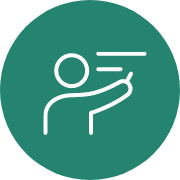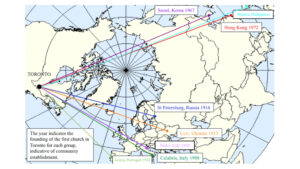WHAT IS IT?
By supporting a faculty-led research project (e.g., Research Opportunity Program), you will have the opportunity to work with a faculty supervisor on their research. In some instances, you will work one-on-one with a faculty member and in others you will contribute to a larger research team as you learn about new research directions and methodologies. Students will take part in various aspects of research and have the opportunity to build a collaborative and collegial relationship with a faculty member.
IMPORTANT CONSIDERATIONS
Eligibility:
- Eligibility for faculty-led research that takes place outside a course will vary depending on the requirements outlined by the lead researcher.
Duration:
- Faculty-led research opportunities vary in duration but would typically be part-time and would last anywhere from a few months to a number of years, depending on the needs of the research project.
Recognition and / or compensation:
- Many co-curricular, faculty-led research opportunities will be paid.
- You will receive course credit for participating in curricular faculty-led research opportunities.
Accessibility:
- Inclusion in EL is achieved when an experience supports learning for all students. In keeping with the Ontario Human Rights Code, the University of Toronto has a commitment to an equitable learning environment for people with disabilities. It is important to engage in an interactive process to determine the optimal and most appropriate accommodations for individual students engaged in experiential learning.
- If a student requires an accommodation related to an faculty-led research opportunity, you may wish to connect with one of the accessibility services offices at the University of Toronto. Staff at these offices will advise you on the disclosure of accommodation requirements as well as support you through the process of determining and negotiating effective accommodations for the student’s individual circumstances.
- Student support offices strive to create a safe and comfortable community where students have opportunities to discuss navigating barriers, find peer support and learn about various academic and social opportunities.
ADDITIONAL INFORMATION
- Students engaging in a co-curricular faculty-led research project will typically enter into an employment agreement with a faculty member or an academic unit. If a student is being paid as an employee of the University, then they receive workplace insurance coverage through the University.
- Students engaging in a curricular faculty-led research project (for credit), receive workplace insurance coverage through the University or Ministry of Colleges and Universities.
- Students engaging in a curricular faculty-led research project (for credit) have general liability coverage through the University.
BENEFITS
- Engaging in research with a faculty member contributes to increased rates of student retention and student engagement.
- Students learn new skills in research and practice through supporting faculty research.
- Faculty can identify students with potential for future positions (e.g., work-study or research assistantships) or study opportunities (e.g., graduate or post-doctoral work).



